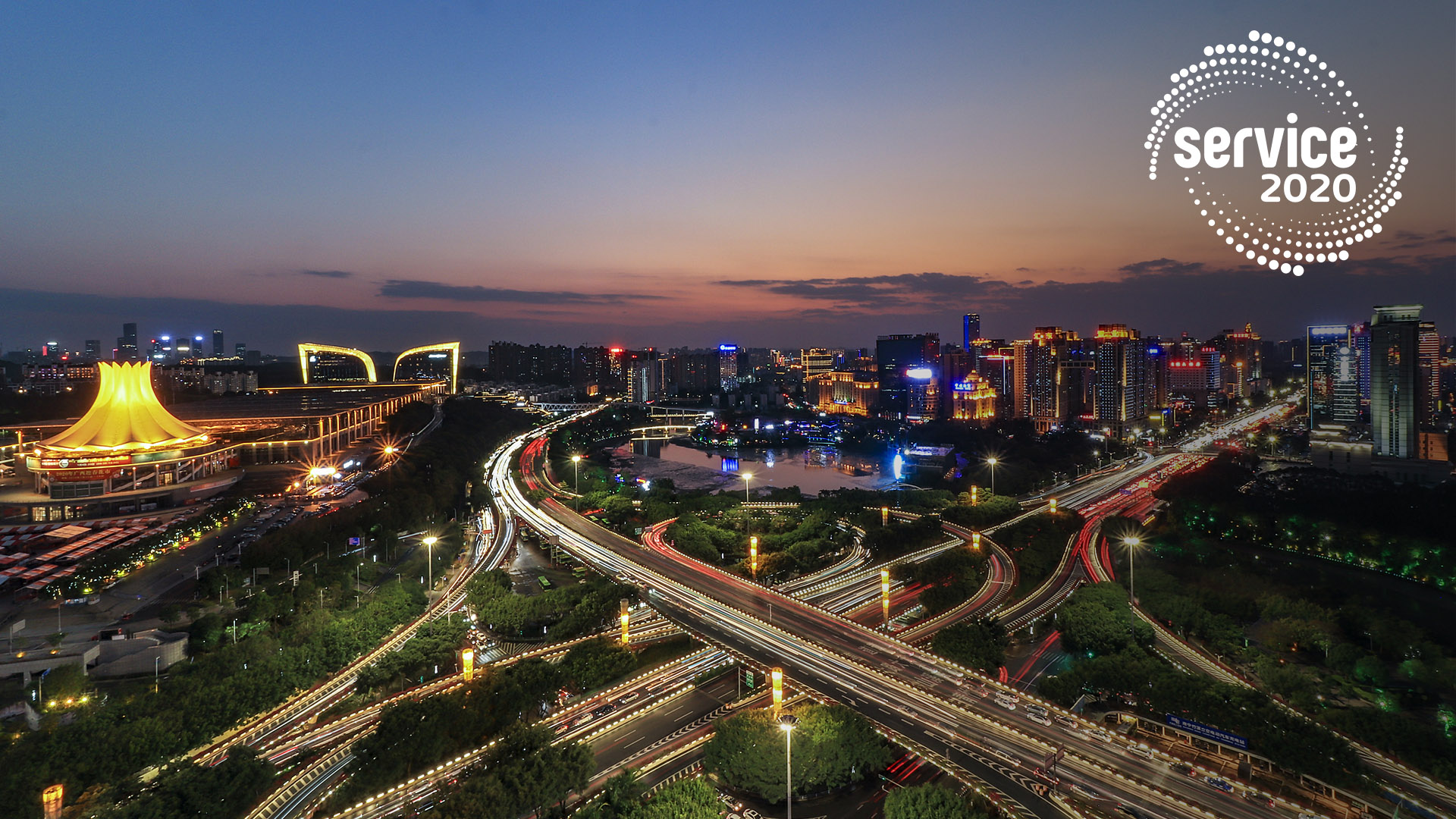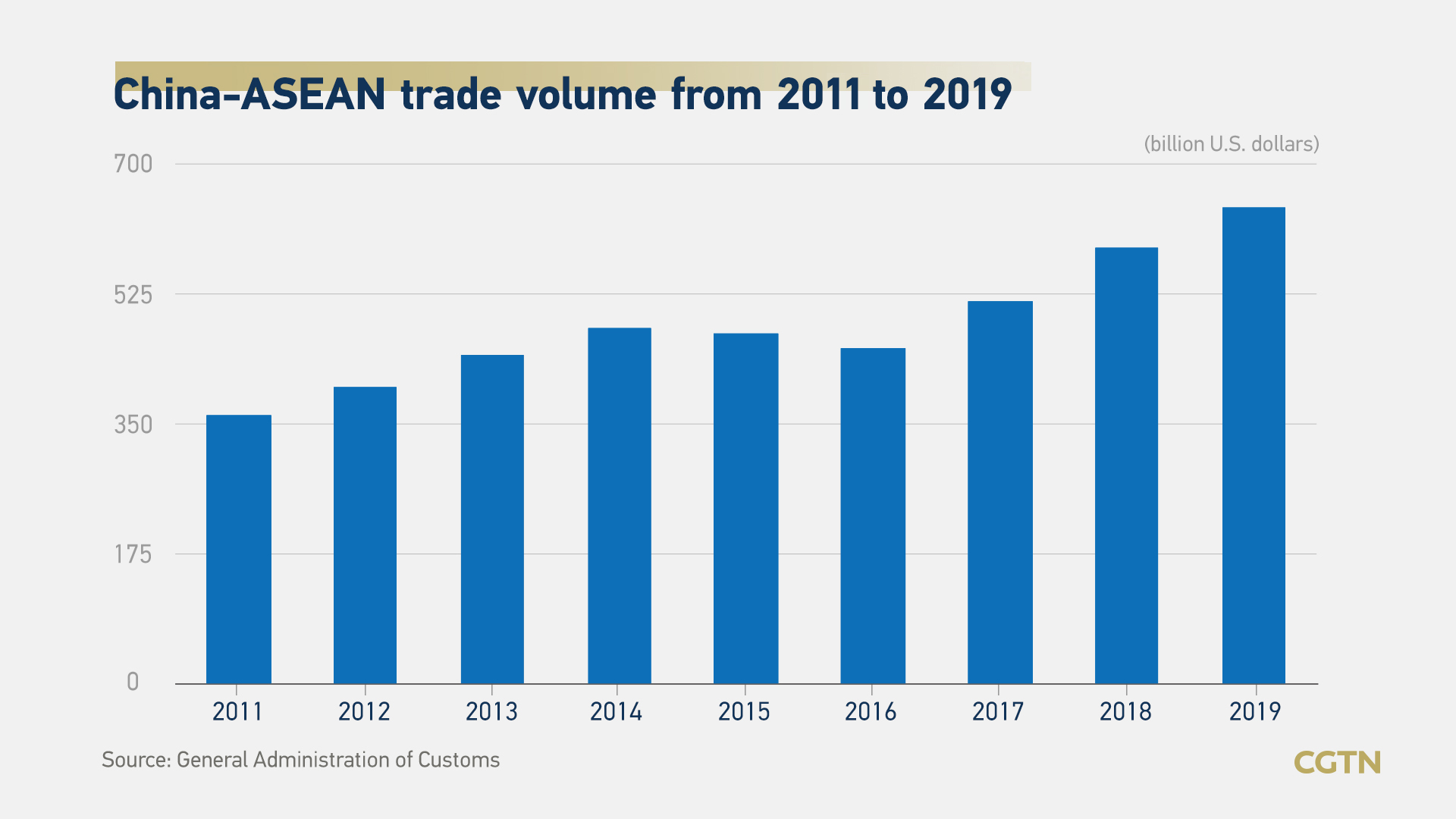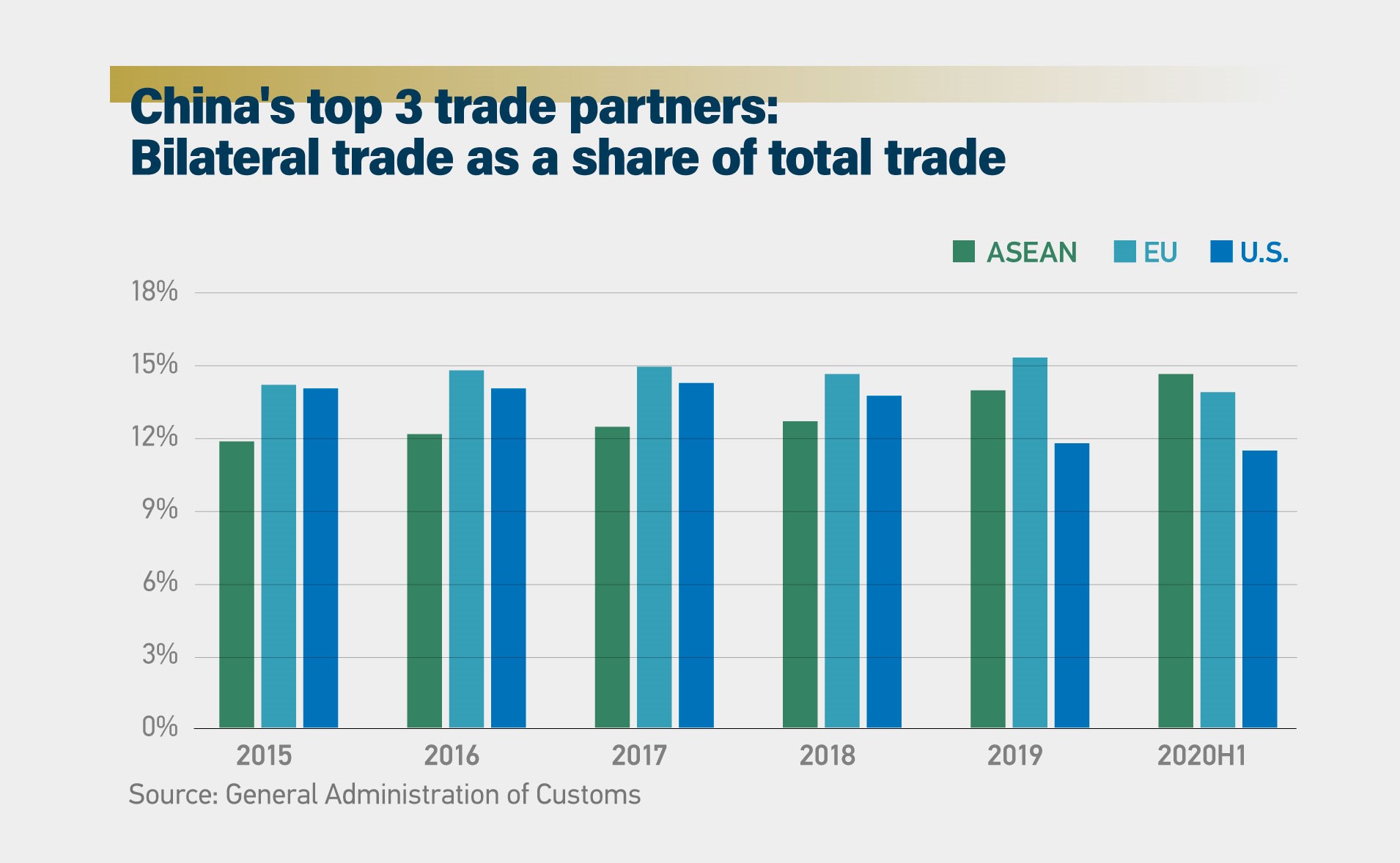
A view of Nannig in southern China, where the annul China-ASEAN Exposition takes place. /VCG
A view of Nannig in southern China, where the annul China-ASEAN Exposition takes place. /VCG
The year of 2020 has recorded the worst public health and economic crisis in a century caused by the COVID-19. In the meantime, the Sino-U.S. trade relation has been rapidly deteriorating, whereas cooperation between China and ASEAN, the south-east Asia block, has kept growing.
The Association of Southeast Asian Nations (ASEAN) is a 10-country block home to 650 million people, 9 percent of the world's population. It has a combined GDP of 2.8 trillion dollars in 2018, comparable to the UK economy's size.
Strengthening industrial cooperation is the inevitable choice for the two sides to achieve mutual benefit and win-win economic cooperation. Xu Ningning, executive president of the China-ASEAN Business Council, told CGTN on the sidelines of the China International Fair for Trade in Services.
"Regardless of whether the Sino-U.S. trade frictions exist or if it intensifies, China and ASEAN will actively carry on industrial cooperation," he affirmed.
The ASEAN-China Free Trade Area, which is bridging China and ASEAN's closer economic relations, has entered its 10th year. Trade in the area can enjoy benefits such as tariff elimination and guarantee of market access.

Industrial cooperation between China and ASEAN increased regional productivity and competitiveness and helped promote regional industrial upgrade and optimize the bilateral trade structure, said Xu.
Trade growth unabated by the pandemic
Defying the pandemic's economic shock, in the first half of 2020, China-ASEAN trade increased by 5.6 percent, making the block China's biggest trading partner, accounting for 14.7 percent of China's total foreign trade volume.

Responding to the skepticism of the longevity of ASEAN's rank as China's number one trade partner, Xu said it depends on multiple factors like international relations and epidemic control.
He continues that China is ahead of the world in resuming work and production, and a couple of ASEAN countries have been gradually lifting restriction measures due to the effective epidemic control.
He also referred to China's huge market and the country's complete industrial system coupled with a non-stop opening-up policy.
Xu commented that these factors would contribute to creating an industrial chain with complementary advantages between China and ASEAN and be conducive to the deepening of regional cooperation in the "complex and volatile" international environment.

Xu Ningning, executive president of the China-ASEAN Business Council speaks on the third Belt and Road Service Trade Cooperation Forum in Beijing, China, September 7, 2020. /China Council for the Promotion of International Trade
Xu Ningning, executive president of the China-ASEAN Business Council speaks on the third Belt and Road Service Trade Cooperation Forum in Beijing, China, September 7, 2020. /China Council for the Promotion of International Trade
Serving as one of the China-ASEAN dialogue and cooperation mechanisms, Xu said his business council has held 14 international conferences in the past four months to mitigate the severe disruptions resulting from the pandemic in the flow of people and goods, as well as investment.
Digital economy
Xu also refers to the digital economy's importance in restoring economic and social development and creating employment opportunities. He added that e-commerce is set among the priorities of ASEAN economic cooperation.
Chinese companies have been actively building up digital connectivity in ASEAN. For example, China's e-commerce giant Alibaba in 2017 launched its first overseas Electronic World Trade Platform (eWTP) in Malaysia, aiming to facilitate the country's small and medium-sized enterprises to trade globally. Chinese tech giant Huawei opened its OpenLab in Singapore in 2019 to promote cloud and AI innovation.
Read more:
China vows to work with other countries to eliminate 'digital divide'
Long Yongtu, the Chief Negotiator for China's entrance into the WTO, regards the digital economy as an "open economy," adding that only countries that implement free trade policies can benefit from it.
He noted that the prevalence of global trade protectionism and unilateralism has created obstacles to the development of the digital economy.
"The United States has made a big fuss on intellectual property rights, cracking down on China's high-tech industries represented by Huawei, trying to mess up the global industrial chain and supply chain, and decouple China and U.S. from international exchanges and cooperation," Long criticized.
The digital economy's driving force is the development of science and technology, which has pushed the formation of an integrated global industrial chain and supply chain.
"These networks will not be broken by one or two countries using their administrative power," Long added.